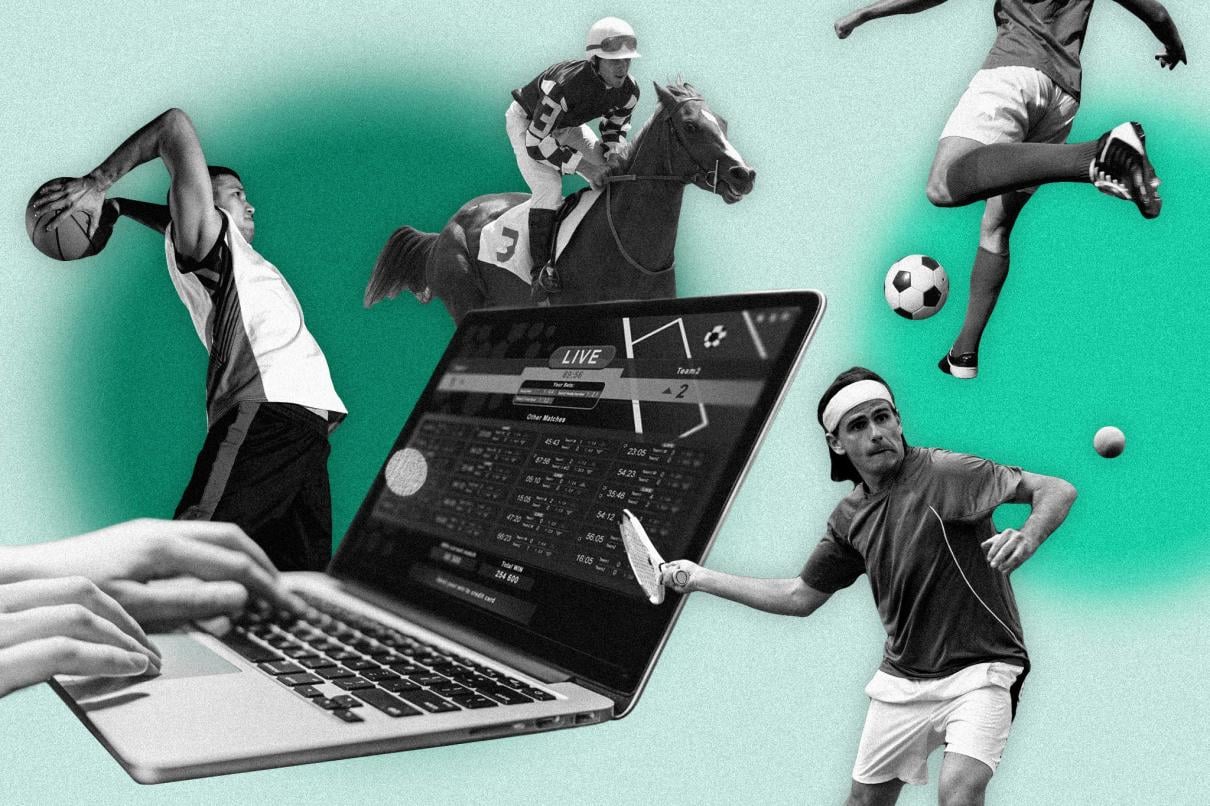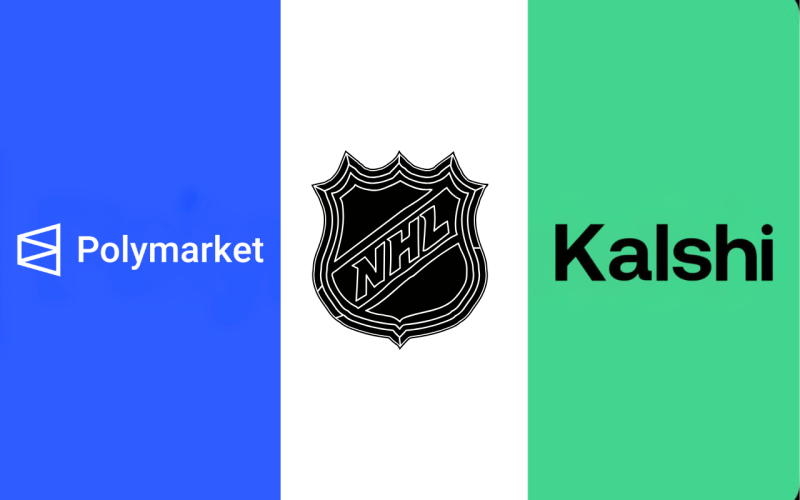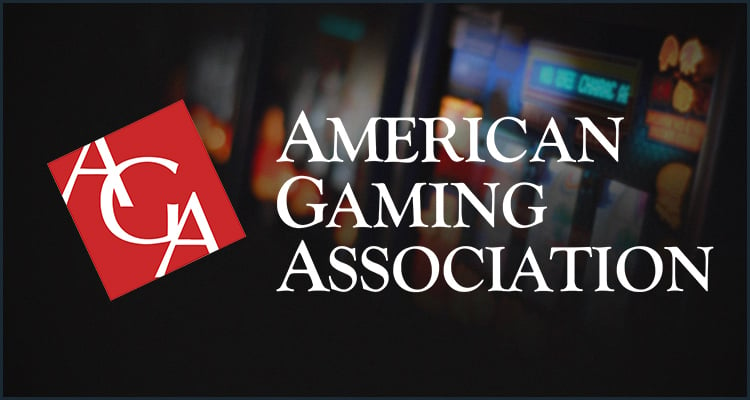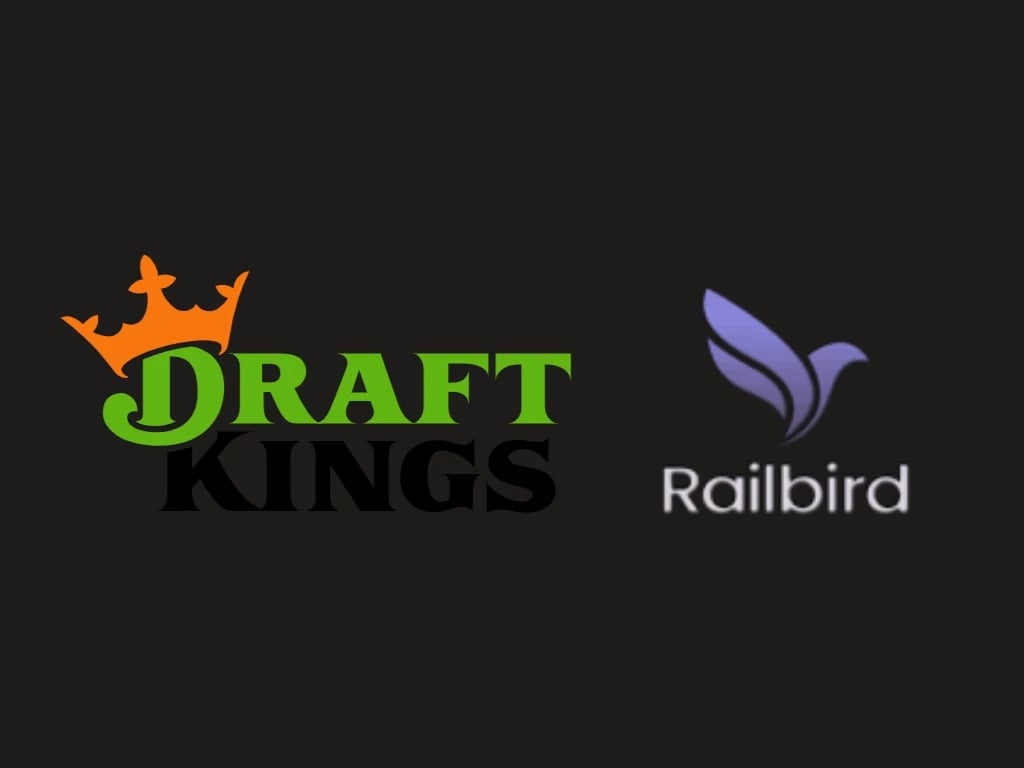Author: PANews, Zen
As Kalshi and Polymarket further expand their business focus into the sports sector, the market is predicted to see a turning point this year with both volume and price increases: media reports indicate that Polymarket is in talks for a new round of financing, targeting a valuation of $12-15 billion; Kalshi, meanwhile, completed a new round of financing in the middle of the year, with a company valuation of approximately $2 billion.
Meanwhile, the monthly transaction volume and daily active users of leading platforms have increased significantly. According to statistics from the Wall Street Journal, the combined transaction volume of the two major platforms increased by more than 90% month-on-month in October. Moreover, most of Kalshi's trading volume growth came from sports contracts, and sports prediction has become the main engine of its growth.
Driven by both industry and capital, Kalshi and Polymarket began seeking official partnerships and endorsements from major sports leagues.

The NHL fires the first shot by partnering with a prediction market.
The National Hockey League (NHL), the North American professional hockey league with the lowest commercial value among the four major North American sports leagues, was the first to embrace the emerging category of prediction markets.
In late October, the NHL announced a multi-year partnership with two prediction market platforms, Kalshi and Polymarket, becoming the first major sports league to partner with such platforms.
This partnership is seen as a sign of the growing importance that prediction markets are receiving from the sports industry. Through this landmark agreement, the NHL grants Kalshi and Polymarket the right to use the league's official data, logo, and name, and allows them to display their branding during live game broadcasts.
NHL Commercial Director Keith Wachtel stated that, so far, the prediction market has not negatively impacted the league's existing 10 official sports betting partners; on the contrary, it has brought incremental growth to the entire ecosystem. Sara Slane, Head of Corporate Development at Kalshi, said this move validates the legitimacy of their business model.
Prediction market platforms operate differently from traditional sports betting companies. These platforms allow users to buy and sell "yes/no" contracts for the outcome of specific events (including sporting events), with prices fluctuating dynamically based on market expectations.
For example, on Kalshi, users can trade contracts such as "whether a team will win the championship," with prices fluctuating based on the progress of the game and changes in probability. This trading mechanism is similar to betting companies adjusting odds based on game results, but prediction contracts are classified as financial derivatives and regulated by the U.S. Commodity Futures Trading Commission (CFTC), rather than betting. This regulatory difference means that Kalshi and Polymarket do not need to obtain sports betting licenses in each state, meaning that theoretically, even in states like California and Texas where sports betting is prohibited, prediction markets can still be used by local users.
Therefore, the NHL believes that introducing prediction markets will help attract a new audience that is tech-savvy and financially savvy, allowing more fans to participate in the games in new ways. Through formal partnerships, the NHL can also have a say in the market contracts related to the league on the platform, preventing betting types that jeopardize the integrity of the games. For example, given that certain individual performance or roster-related markets may raise insider information and ethical risks, official partnerships will give the NHL more say in the types of markets related to the league.
Furthermore, the NHL has required Kalshi and Polymarket to adhere to the same integrity monitoring standards as official betting partners, including the use of league-authorized data providers and game irregularity monitoring systems. NHL Commercial Director Keith Wachtel emphasized that the league's collaboration with prediction platforms better upholds sports integrity because "as a league, we can participate in deciding which markets can be listed, which benefits the NHL and all sports organizations."

Doubts and Observations about the NBA, NFL and MLB
Compared to the NHL's open attitude, the other three major American professional sports leagues with greater commercial value—the NBA, NFL, and MLB—have been more cautious and resistant to predicting market trends.
The three major leagues have not only refrained from establishing official partnerships with any prediction platforms, but have also expressed their concerns about such platforms through various channels. Earlier this year, the NBA, NFL, and MLB each sent letters to the CFTC, emphasizing the importance of protecting sports integrity in this emerging market.
The NFL's position is quite representative. In a written statement to the CFTC, NFL Public Policy Director Jonathan D. Nabavi emphasized that such contracts "simulate sports betting in effect, but lack the full integrity and consumer protection mechanisms found in regulated sports betting."
Meanwhile, NFL Vice President of Sports Betting David Highhill stated in a media interview that the league will treat the prediction market as a form of betting and is concerned that "if regulation is inadequate, there could be issues such as manipulation or price distortion"; therefore, it should have the same level of protection and risk control standards as state-licensed sports betting.
The NBA and MLB share similar concerns. While neither has publicly elaborated on their positions, their communication with the CFTC and industry feedback suggest that the core of their concerns lies in the integrity of the games and a regulatory vacuum. They question how the leagues can ensure that insider information isn't exploited and game results aren't manipulated if fans and investors can circumvent state laws to bet on game outcomes on these platforms.
The caution shown by the three major leagues is not unfounded. In particular, the NBA has been embroiled in numerous scandals over the past two years, including major incidents of using non-public injury and attendance information, such as "whether someone plays/when they leave the game," for betting arbitrage.
From a more pragmatic business perspective, the three major leagues have deep partnerships with traditional betting companies, investing significant resources to establish a standardized betting system. The "gray area" practices of prediction market platforms, however, seem to circumvent state laws and league agreements, naturally raising concerns among the management of the three major leagues.
However, the door that is temporarily closed may still reopen. Historically, the NFL strongly resisted the legalization of sports betting for a long time before 2018, but subsequently gradually established cooperative relationships with the compliant betting ecosystem, indicating that its attitude will adjust as regulatory and risk control conditions mature.
NBA Commissioner Adam Silver's views are likely more open; he advocated for the proper recognition and regulation of the betting market from the early days of legalization. Therefore, his approach to prediction markets is unlikely to be rigidly conventional; the key may lie in whether there is a clear regulatory framework and a risk-controlled operating model.
The betting industry association strongly criticized the move, stating that it is focusing on the risks to integrity in sports betting.
Compared to the wait-and-see attitude of sports leagues, the US betting industry has been the most vocal in its reaction. The American Gaming Association (AGA), the industry's authoritative body, has been highly critical of prediction market platforms such as Kalshi and Polymarket.
Following the NHL's announcement of its partnerships with Kalshi and Polymarket, AGA Chairman Bill Miller publicly stated that the move was "deeply disappointing and extremely dangerous." He denounced these prediction platforms as "backdoor gambling schemes disguised as 'financial products,'" warning that the NHL's move sent a bad signal: that integrity, responsibility, and clear legality have become optional in the sports betting industry.
The AGA stated that its primary concerns are the integrity risks associated with sporting events and the potential for consumer protection. The association pointed out that the United States has spent seven years building "the world's most robust and transparent legal sports betting market," which includes rigorous integrity monitoring, responsible betting measures, and consumer protections.

Kalshi and Polymarket operate nationwide, bypassing state regulations, which means they circumvent state-level review and restrictions. Miller questions whether these platforms, lacking the stringent compliance reviews and player protection mechanisms required by state gambling regulators, could become breeding grounds for illegal activities.
For example, without state regulation, how can we ensure that minors are not involved in trading? How can we prevent insider trading or large-scale market manipulation? AGA believes these are unresolved risks.
The AGA further stated that commodity futures regulators do not have the same in-depth event monitoring and violation investigation capabilities as state gambling regulators, and placing sports betting under the jurisdiction of the CFTC may not effectively maintain the integrity of the competition.
Besides criticizing prediction markets for exploiting legal loopholes, the AGA actively courted the three major sports leagues. Shortly after the NHL announced its partnership, the AGA sent letters to the NFL, NBA, and MLB, urging them to avoid business partnerships with "inadequately regulated prediction market platforms." The letter strongly argued that aligning with such platforms that circumvent regulations would "undermine the legitimate market achievements built over the past few years and expose the leagues themselves to reputational and legal risks."
It is foreseeable that the AGA will continue to lobby regulators, legislatures, and sports leagues to tighten policies on prediction markets and ensure that there are no "regulatory vacuums and gray areas" in the sports betting sector.
Regulatory and legal challenges continue, with predictions suggesting the market may be embroiled in litigation.
Faced with industry skepticism and resistance, Kalshi and Polymarket have actively sought partnerships and endorsements, while also enduring long-standing regulatory and legal disputes. Over the past few years, these two platforms have been involved in numerous enforcement and litigation cases with the U.S. Commodity Futures Trading Commission (CFTC) and regulators in several states, highlighting the ongoing controversy surrounding the legal status of prediction markets.
In early 2022, the CFTC initiated enforcement action against Blockratize, Inc., the operating company of Polymarket, alleging that the platform had been offering event trading without registration since June 2020, violating the Commodity Exchange Act (CEA). These contracts covered a wide range of topics, including political elections, economic indicators, and even popular culture, and were essentially swap transactions in the form of binary options. However, Polymarket was neither a registered exchange (DCM) nor a swap execution facility (SEF) licensed. Ultimately, Polymarket chose to settle with the regulator, agreeing to pay a $1.4 million fine and shut down all non-compliant markets on its website to avoid future regulatory violations.
Compared to Polymarket, Kalshi's legal battles are more complex and ongoing. Kalshi is currently the only prediction exchange registered with the CFTC as a "Designated Contract Market" (DCM), which grants it the qualification to list event derivatives contracts at the federal level. Since the beginning of this year, Kalshi has launched several sports-related contracts (such as whether a team advances or wins the championship) and put them into trading without being rejected by the CFTC.
However, these products violated the gambling laws of several states. Regulatory agencies in multiple states, including New York, New Jersey, Massachusetts, and Ohio, issued cease-and-desist orders to Kalshi, stating that its sports contracts were tantamount to unlicensed sports betting and should immediately cease providing services to residents within their states.
Kalshi did not back down but instead countersued the state regulators, seeking a judicial ruling in federal court. The core legal dispute lies in whether federal commodity exchange law takes precedence over state gambling laws. Kalshi argues that as a federally sanctioned exchange, its event contracts fall under federal regulation, and the CFTC has exclusive jurisdiction over these products, which states cannot interfere with under their local gambling laws. In its lawsuit, Kalshi claims that state regulators' attempts to forcibly suspend federally licensed trading using state law contradict Congress's intention—that the CFTC was established precisely to prevent fragmented regulation of interstate derivatives markets.
Currently, Kalshi's legal battles with various states are extending to the federal appeals court. In June of this year, a case of Kalshi v. New Jersey Gaming Enforcement was appealed to the U.S. Court of Appeals for the Third Circuit, with as many as 34 state attorneys general jointly supporting New Jersey in their amicus brief.
The consensus reached by legal officials from states with legal betting, such as New York and Michigan, as well as states with outright bans like Utah and Idaho, is that Kalshi's contracts are "essentially sports betting, just disguised as commodity contracts." Their interpretation of federal law, intended to circumvent state betting regulations, represents a usurpation of the long-standing regulatory sovereignty of states. They emphasize that allowing Kalshi to continue this model will weaken the regulatory framework established by states since the lifting of the PASPA ban in 2018 and erode the authority of state law in the field of sports betting.
The aforementioned stakeholders in the betting industry naturally sided with Kalshi in this legal battle. The American Betting Association, representing the industry, submitted its opinion in the case, emphasizing that the CFTC lacks the appropriate professional capacity to manage complex sports betting and cannot allow federal commodity laws to cover sports betting. Some sports league officials also worry that if Kalshi wins, any exchange could follow suit and launch its own customized sports betting contracts, leaving states without oversight and posing a significant risk to sports integrity.
Conversely, Kalshi insists that its contract design helps the market hedge against sports risks and provides liquidity, and criticizes the regulators' hardline stance as "stifling innovation." Kalshi CEO Mansour even described the multi-state blockade as "censorship," arguing that prediction markets should be protected like free speech, which drew a strong rebuttal from the authorities.
Kalshi's legal battle with state regulators continues to unfold. The outcome of the ruling will not only determine the survival of its own business but also the position of the sports prediction market within the US legal system. In the short term, the uncertainty of the law itself is a major obstacle to the expansion of these platforms.
Entering and countering: Traditional gaming giants are also targeting emerging markets.
Faced with the rise of prediction market platforms, traditional sports betting operators are not all resolutely resisting them. Some betting giants have also realized the new business opportunities contained in the prediction market and have chosen to try to enter the market through investment and acquisition or independent development in order to avoid falling behind in the new round of competition.
DraftKings, a leading online gambling company in the United States, recently took a noteworthy step. In October 2025, DraftKings announced its acquisition of Railbird Technologies and plans to use the acquisition to launch a new platform called "DraftKings Predictions," which will provide users with contract trading services based on real-world events.
In addition, DraftKings also announced a partnership with Polymarket, which will act as the designated clearinghouse for DraftKings' prediction market products, handling transaction matching and fund settlement. DraftKings CEO Jason Robins stated that the integration of Railbird's technology and Polymarket's underlying support will "enable us to succeed in this new incremental market."

Rather than confronting and opposing, it's better to participate. Some analysts believe that this foray into the prediction market not only helps DraftKings expand into states where gambling is not yet legal (by offering its product through the CFTC), but is also a defensive strategy: rather than watching Kalshi and others grab users, it's better to establish a foothold in the market early. Judging from the stock price reaction, DraftKings' stock rose by about 2% on the day of the announcement, indicating that the capital market approves of its strategy.
Besides DraftKings, industry giants like FanDuel are also closely monitoring developments in this field. According to ESPN, FanDuel is "ready to enter the prediction market" and is conducting internal technical and compliance assessments.
In this battle between tradition and innovation, who will emerge victorious?
In summary, the expansion of prediction market platforms in the sports sector is sparking a debate between supporters and opponents. Supporters include innovative leagues (such as the NHL) and capital firms that see the opportunity (such as DraftKings). Their argument is that prediction markets offer innovative ways to engage fans and financialized risk hedging tools, and that they can coexist and thrive alongside traditional betting, provided that regulations are properly in place and integrity measures are implemented.
Opponents, comprised mostly of sports organizations, betting regulators, and vested interests, warned that the prediction market was "growing wildly" outside the existing legal framework and could undermine long-established safeguards of integrity and consumer protection. The two sides held differing views on issues such as sports integrity, legal jurisdiction, and market fairness, resulting in heated debate.
Looking ahead, the fate of the sports prediction market in the United States will gradually become clearer as the court rulings on the Kalshi lawsuit, the attitudes of regulatory agencies become clearer, and more leagues express their opinions. If all parties can find a compromise (such as introducing federal standards while respecting state interests), this emerging phenomenon may be able to integrate into the mainstream and inject new vitality into the sports industry; however, if the conflict intensifies, the prediction market may be forced to shrink, and its ambitions in the sports field will be thwarted.
As a neutral observer, PANews will continue to monitor the movements of Polymarket and Kalshi: whether they can overcome regulatory hurdles, win more league support, or ultimately adjust their strategies in the face of resistance, this game between tradition and innovation is still evolving. The outcome of the game will not only determine the rise and fall of the two companies, but may also influence the future landscape of the integration of sports betting and financial markets.







